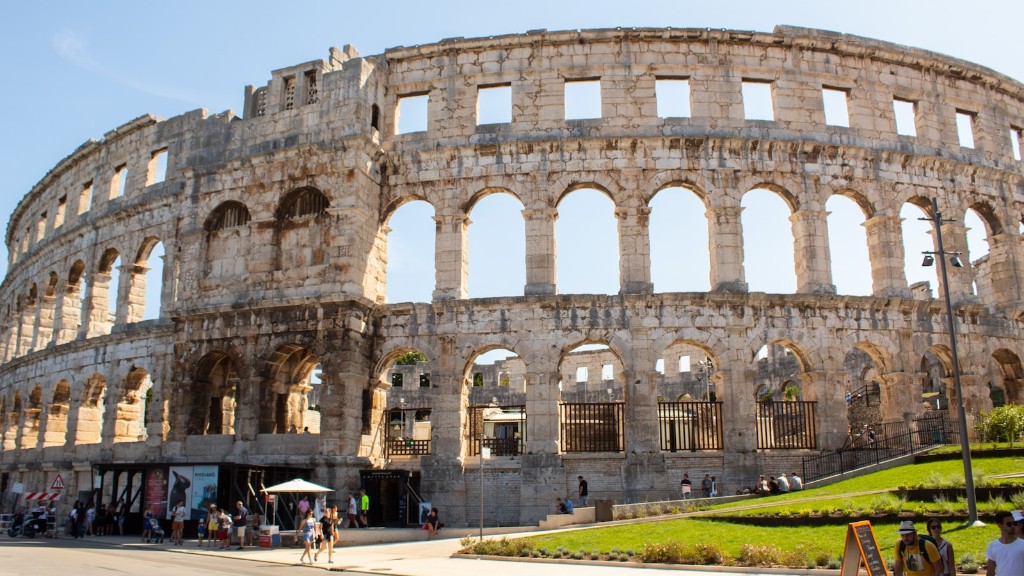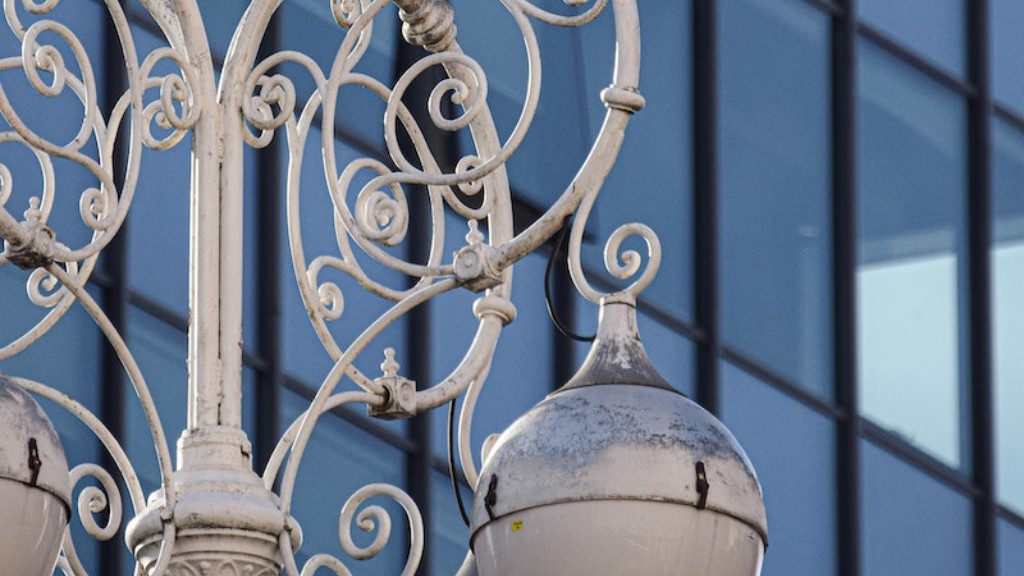How Much Is Prostitution In Croatia
Prostitution is a complex, diverse and frequently misunderstood industry, and Croatia is no exception. The country has several hidden hotspots for prostitution and the sex trade, in addition to a long-established culture of sex work. In this article, we will explore the extent of prostitution in Croatia, the various types of services offered, the legal status of prostitution, and how government initiatives are seeking to regulate the industry.
Generally speaking, prostitution is illegal in Croatia, yet there are loopholes in the law that make it difficult for authorities to prosecute those engaging in it. Prostitutes can be arrested if they are caught plying their trade in public. Despite being illegal, it’s estimated that thousands of women, men, and transgendered people are engaged in the sex trade in Croatia. There is no officially recorded data on prostitution in the country, however, it’s thought that prostitution in Croatia has grown significantly since the fall of Communism in the early 90’s.
It’s estimated that the majority of sex workers in Croatia are women and girls who have been trafficked from other countries or forced into prostitution through economic necessity. In general, street sex work is more common in larger cities such as Zagreb and Dubrovnik, while escort services and massage parlors are more prevalent in the countryside. Prostitution is not only found in bars and nightclubs but also through escort agencies, online ads, brothels, escort services, and massage parlors.
Unregistered sex workers typically offer services at a much lower rate than those who are registered and in most cases can be found on the streets. Registered sex workers typically have a more formal setup, advertising their services online or through a client’s word-of-mouth referral. It is difficult to accurately estimate how much a sex worker might earn in Croatia, as their fees can vary drastically. It is thought that sex workers in Croatia may earn anything from around 400 to 1,500HRK per hour, although some may charge more.
The government of Croatia has been attempting to combat the issue of prostitution in the country. It has introduced education and training programmes for citizens to help them report any suspected cases of sex trafficking and has established a fund to help victims of the sex trade. Additionally, legislation has been proposed in the Croatian Parliament that seeks to change the way prostitution is regulated in the country.
There are also a variety of organizations that are working to provide support and assistance to sex workers in Croatia. Organizations such as the “Centre for Human Rights” and the “Croatian Prostitution Action Group” are actively involved in raising awareness and providing care for those involved in the sex trade. These organizations provide support, legal advice, assistance in finding new employment, and access to medical and psychological care.
Although prostitution is illegal in Croatia, it is still a major problem. Attempts by the government to regulate prostitution and provide assistance to those involved in the sex trade are important steps in addressing this issue. However, the problem of prostitution in Croatia is not one that can easily be solved and will require a concerted effort from both political and civil society groups to ensure its long-term success.
Types of Prostitution in Croatia
In Croatia, there are several different types of prostitution that can be found. Street sex work is most commonly found in the larger cities, such as Zagreb and Dubrovnik. However, it can also be found in smaller towns, such as Pula and Poreč. When engaging in street prostitution, sex workers can be found both on the streets and in unmarked buildings. Escort services, strip clubs, and massage parlors can also be found in Croatia. Escort services provide clients with the opportunity to book a session, either online or through a telephone call. Strip clubs offer a variety of services, including private dances, group activities, and bachelor/bachelorette parties.
Massage parlors are a popular type of prostitution in Croatia, as they provide a discreet and secluded environment for sex work and are usually located in remoter areas. The cost of services in this type of establishment vary, depending on the type of service offered. Services range from hand-jobs and lap dances to as high as full-on intercourse. It is important to remember that massage parlors are not a legal means of conducting prostitution, and sex workers should only work in licensed establishments.
Another type of prostitution in Croatia is online sex work. This type of prostitution involves sex workers advertising their services and arranging for clients to contact them directly. This type of prostitution is becoming more and more popular in the country, as it allows sex workers to remain completely discretion and can be more profitable than street or bar-based sex work.
Lastly, there is a type of prostitution in Croatia known as ‘private clubs’. These clubs are often connected to escort agencies and only admit clients who are members and pay an entrance fee. Private clubs offer a variety of services, from stripteases and lap dances to full sexual services, as well as providing accommodation, meals, and drinks.
Legal Status of Prostitution in Croatia
Prostitution is illegal in Croatia, although there are some loopholes in the law that make it difficult for authorities to prosecute those engaging in it. A person engaging in prostitution may be arrested if they are caught plying their trade in public, however, those working in private are usually not harassed by authorities. Prostitution is not completely outlawed in Croatia, as it’s still tolerated in licensed establishments, such as massage parlors. However, unlicensed establishments are illegal and sex workers working in these establishments can be arrested.
The government of Croatia is trying to find ways to both reduce the incidence of prostitution while also protecting those who participate in the sex trade. A section of the Penal Code known as Art. 32/1 concerns ‘sexual exploitation’, and can prosecute any person, business, or organization found to be engaging in this kind of activity. It is very difficult to enforce this law, however, as it requires proof of involvement in human trafficking or some other form of organized crime.
Government Initiatives to Regulate Prostitution in Croatia
In an effort to reduce the prevalence of human trafficking and to protect those engaging in the sex trade, the Croatian government has introduced several initiatives to regulate and control prostitution in Croatia. In 2008 the government introduced a law which prevents petty criminals from being punished as harshly as those engaging in prostitution. This law was designed to make sure those who are caught engaging in the sex trade are given appropriate sentences for their actions.
In 2017, the government also passed a law which sought to address the demand for prostitution in Croatia. This law requires customers of prostitution to obtain a special permit in order to be able to patronize sex workers. This law is still in the process of being implemented, but its intention is to reduce demand for the services provided by sex workers and to ensure that those who are engaging in the industry are doing so of their own volition.
The government has also set up a special fund to provide assistance to victims of the sex trade in the form of education, healthcare, and rehabilitation. This fund has been successful in providing support and assistance to those affected by human trafficking and the sex trade. The government has also supported several NGO’s which offer support and advice to those engaging in prostitution, as well as providing training for law enforcement officials so that they are equipped to handle such cases.
Organizations Providing Support to Sex Workers in Croatia
In addition to government initiatives to regulate prostitution in Croatia, there are also a number of organizations that seek to provide support and assistance to those engaging in the sex trade. Organizations such as the “Centre for Human Rights” and the “Croatian Prostitution Action Group” are actively involved in raising awareness and providing care for those involved in the sex trade. These organizations provide support, legal advice, assistance in finding new employment, and access to medical and psychological care.
These types of organizations have been successful in providing much needed support and assistance to those affected by prostitution in Croatia, as well as advocating for improved rights and working conditions for sex workers. By providing access to comprehensive healthcare, vocational training, and psychological support, these organizations have been able to improve the quality of life for sex workers in the country.
Public Opinion on Prostitution in Croatia
Although the government is taking steps to control and regulate prostitution in Croatia, public opinion is highly divided when it comes to the issue. Some view prostitution as a crime or a form of exploitation, while others support it as a legitimate job for individuals to make a living.
Those who oppose prostitution believe that it encourages human trafficking and exploitation, while those in favor of it claim that it provides an invaluable service to those who are in need of it. There is also a large portion of the population who believe that prostitution should be decriminalized or regulated, rather than outlawed, so as to protect both sex workers and their customers.
In general, public opinion on prostitution in Croatia is divided and will likely remain so in the near future. As such, it may be necessary to find a middle ground between outlawing and fully legalizing the industry in order to protect those involved in the sex trade.
Conclusion
Prostitution is a complex and controversial issue in Croatia, which is why it is important to understand the scope and complexity of the industry. Although illegal, prostitution is still a major problem in the country, and the government has taken steps to regulate and provide assistance to those involved in the sex trade. Additionally, there are organizations that are providing assistance and support to those engaged in the sex trade, as well as calling for improved rights and working conditions for sex workers. Ultimately, the issue of prostitution in Croatia is an ongoing debate, and finding a viable solution will require a concerted effort from both political and civil society groups.





